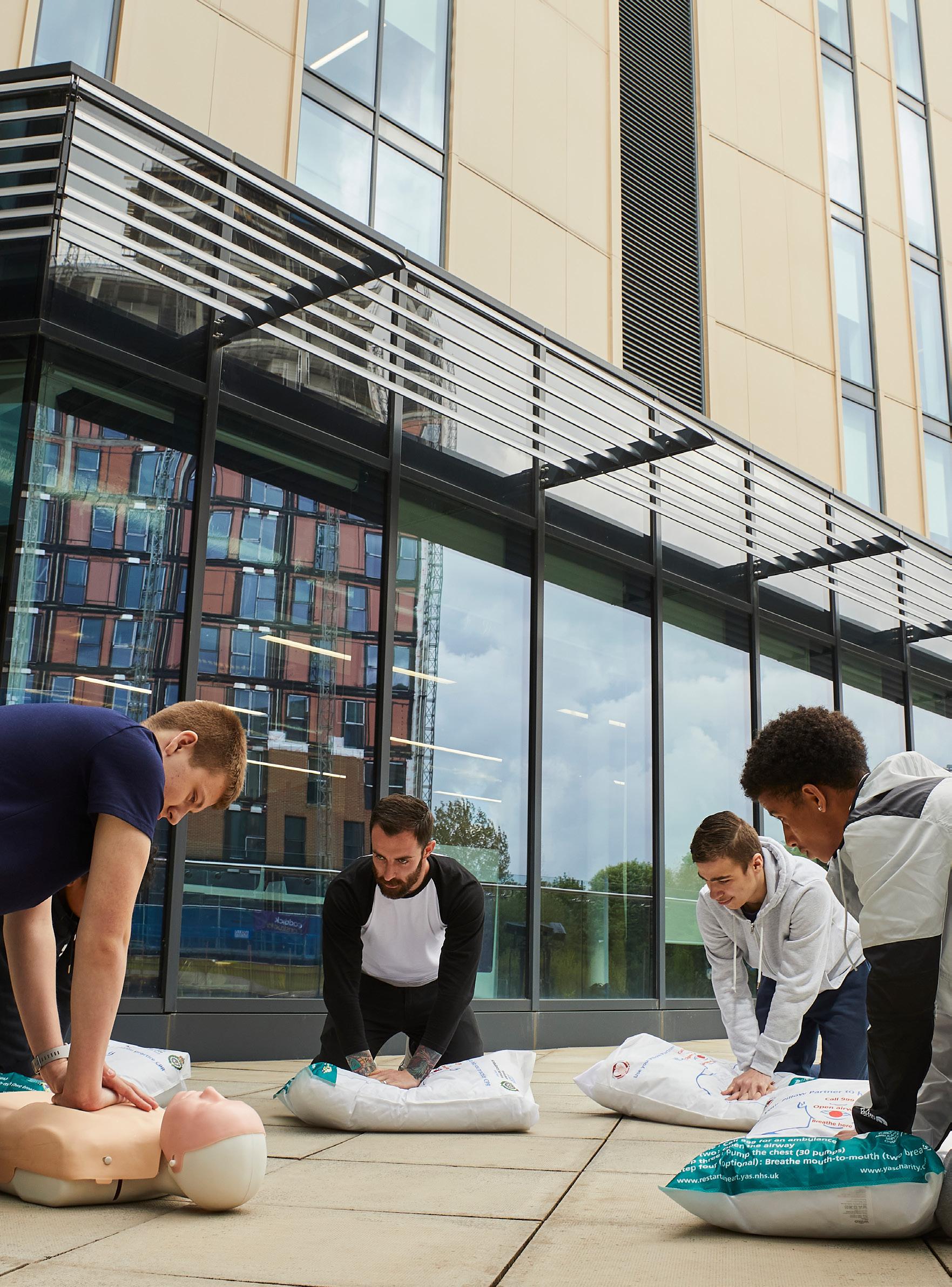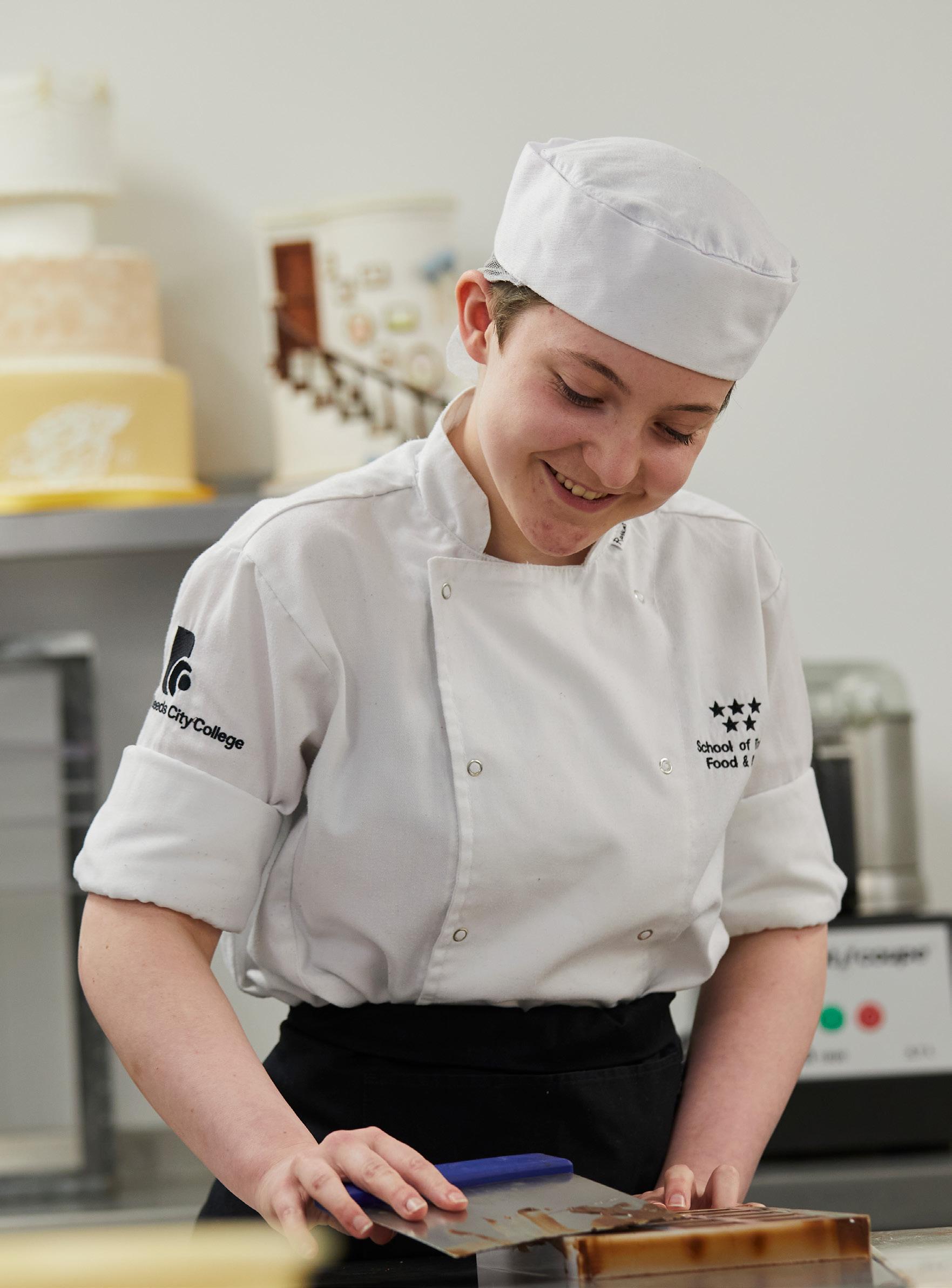Become an Apprentice
Find out how to become an apprentice and what apprenticeships are available.


Find out how to become an apprentice and what apprenticeships are available.

An apprenticeship is a full time job that involves working at a job as an employee. It focuses on gaining hands-on experience and learning for a period of time (often 12-24 months). An apprenticeship can vary in hours, it is full time, 30 hours a week, with a maximum of 40 hours dependant on the role/employer.
Apprenticeships typically include:
• 80% practical, on-the-job training
This will take place in the workplace and include learning rounded, dedicated skills to your role and industry
• 20% off-the-job training
With assignments, specific learning and skill-building taught by expert tutors from the college. This might take place in a classroom on campus.
At the end of an apprenticeship, you'll receive a recognised qualification and a portfolio of desirable and relevant skills to help you advance in your chosen industry. In fact, 90% of apprentices stay on in their place of work after their apprenticeship*.


Some apprenticeships may require you to already hold an existing qualification. For example, advanced apprenticeships often require a qualification from an intermediate apprenticeship (or the equivalent) first.
Anyone aged 16 or over can apply for an apprenticeship, regardless of their background in education or employment. All apprenticeship applicants must live in England and not take part in full-time education.
If you benefit from hands-on learning and know the career you want to progress in, an apprenticeship is a perfect alternative to traditional, classroom-based education.
Who can apply for an apprenticeship?




Intermediate Apprenticeships are equivalent to a junior role within a company. These are for new candidates in the industry and teach the basic skills and knowledge required to progress within a chosen career path.
Examples of job roles include: Administrator Assistant, Junior Hair Stylist and Commis Chef.
An Advanced Apprenticeship builds on the skills and knowledge gained from an Intermediate Apprenticeship. These apprenticeships begin to specialise a candidate’s industry knowledge. They are suitable for people who have previously completed an apprenticeship or have been within a job role for some time.
Examples of job roles include: Software Developer, Chef de Partie and Electrical Engineer.
Higher Apprenticeships are for people in senior roles within a company who want to develop their skills to progress further. These apprenticeships are equivalent to completinga foundation degree or Higher National Diploma.
Examples of job roles include: Apprentice Teacher, Lab Technician and Project Manager.
Degree or Master's Degree
Apprenticeships are for those who want to be specialists within their field and hold a senior position within a company (such as senior management ortechnical specialist). These apprenticeships usually involve the undertaking of an under/postgraduate qualification.
Examples of job roles include: Managing Director, Laboratory Scientist and HE Lecturer.
Learn, earn and graduate with a recognised qualification
Get your foot in the door to the industry you want
Work with some of the best businesses, right on your doorstep
Develop specialist skills you can only learn on the job
An alternative to A levels, diplomas and degrees with job security ahead
Paid holidays
Increased future earning potential
No debt to pay when completing a higher or degree apprenticeship
Apprentices tend to stay long term with the business that employs them and grows with them


•
If you're aged 16 to 18, you'll be entitled to the National Minimum Apprentice Wage. Some employers will offer a higher wage than this
• If you're aged 19+ and in your first year of an apprenticeship, you'll receive £4.81 per hour
•
If you're aged 19+ and have finished the first year of your apprenticeship, you can receive the National Living Wage or the National Minimum Wage
It's important to note that these wages are merely the minimum you can earn as an apprentice - many employers offer a competitive salary.
What can I earn as an apprentice?
I have learnt a lot in my time at Sporting Age. My trainer is absolutely lovely, we get along very well and she has played a key role in my progression so far. Most of my work is mainly capturing images, creating video / image content, assessing analytics and reviewing optimisation. It relates to a lot of my own interests and hobbies, which makes my job very interesting.
Leah SkotnickiLevel

“I thought that working alongside getting a qualification and actually having tasks to do that mattered made me feel like I had a bit more responsibility, and that helped me learn. Initially Organico’s social media pages were photographyheavy but since I have been on board, we have changed how it looks and runs. Being able to contribute to the brand as a whole has allowed the platforms to grow, which has boosted my confidence in the process.”

Level 3
Digital Apprentice

Animal Care Business
(Accountancy, HR, Customer Service, Law, Management, Team leader)
Childcare Construction (Plumbing, Brickwork and Joinery)
Creative Arts (Visual & Digital, Media & Performance Production)
Digital & IT
Education & Teaching
Engineering
Electrical
Motor Vehicle
Hair, Beauty & Media Make-up
Hospitality (Chef, Butchers, Bakers, Front of House Service)
Health & Social care (Clinical and Social)
Pharmaceutical
Sports & Exercise Science
Teacher Training
OF CREATIVE ARTS - VISUAL
OF CREATIVE ARTS
DIGITAL
PERFORMANCE
Early Years
Adult Care Worker
SCHOOL OF SPORT SCIENCE & EXERCISE
Leisure Team Member
You can search our range of apprenticeships on our website and will see available apprenticeships listed as vacancies. The application process for an apprenticeship is similar to a job application, with businesses often having availability for one apprentice at a time.
you haven't written a job application before, or would like support with writing one, our recruitment team can help you through the process. Alongside support with application and CV writing, they can also guide you on interview
ways to build your confidence and plenty more.


I know which apprenticeship I would like to pursue
I have looked at the vacancies available in the organisations that offer the apprenticeship
I have the required entry requirements and experience, and can explain this in an interview
I can commit to the working hours
I know how much I will get paid for the apprenticeship
I understand what qualification I will receive if I successfully complete the apprenticeship
I have asked someone I trust to check my CV and application
I am interview ready. If not, I know I can go to the apprenticeship team for support
We aim to create the best possible opportunities for all our learners regardless of background, ability or income. We also work closely with our apprenticeship employers to create positive, safer learning experiences that are inclusive and supportive. This includes safeguarding processes, financial support and Disability and Learning Disability support.
Outside of your apprenticeship place of work, you'll have access to a college tutor and our Student Wellbeing team. For any concerns regarding safeguarding, we also have a dedicated safeguarding team to offer all students support.
you have any questions, would like to know more, or want to speak to a member of our

